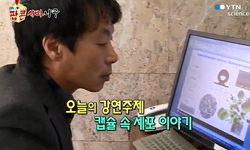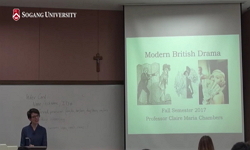1980년, GK 디자인 그룹의 회장이자 메타볼리즘 운동의 전 멤버였던 에쿠안겐지(?久庵憲司, 1929- )는 『일본 도시락의 미학: 일본적 발상의 원점』(이하 일본도시락의 미학)을 출판했다. 서론에...
http://chineseinput.net/에서 pinyin(병음)방식으로 중국어를 변환할 수 있습니다.
변환된 중국어를 복사하여 사용하시면 됩니다.
- 中文 을 입력하시려면 zhongwen을 입력하시고 space를누르시면됩니다.
- 北京 을 입력하시려면 beijing을 입력하시고 space를 누르시면 됩니다.

에쿠안 겐지의 일본 도시락의 미학 = Issues in the 1980 Japanese Design : Ekuan Kenji’s The Aesthetics of Japanese Lunchbox (1980)
한글로보기https://www.riss.kr/link?id=A99822590
- 저자
- 발행기관
- 학술지명
- 권호사항
-
발행연도
2013
-
작성언어
Korean
-
주제어
일본 도시락 ; 마쿠노우치 도시락 ; 에쿠안 겐지 ; GK 디자인 그룹 ; 메타볼리즘 ; 에코 디자인 ; 콤팩트성 ; 유연성 ; 포스트모더니즘 ; 니혼진론 ; 캡슐 ; Japanese lunchbox ; Makunouchi lunchbox ; Ekuan Kenji ; GK Design Group ; Metabolism ; Eco design ; Compactness ; Flexibility ; Postmodernism ; Nihonjinron ; capsule
-
등재정보
KCI등재
-
자료형태
학술저널
-
수록면
449-471(23쪽)
- 제공처
-
0
상세조회 -
0
다운로드
부가정보
국문 초록 (Abstract)
1980년, GK 디자인 그룹의 회장이자 메타볼리즘 운동의 전 멤버였던 에쿠안겐지(?久庵憲司, 1929- )는 『일본 도시락의 미학: 일본적 발상의 원점』(이하 일본도시락의 미학)을 출판했다. 서론에 이어 두 부분으로 구성된 이 책은 먼저 제 1장에서 일본 전통의 마쿠노우치 도시락(사등분한 사각형의 용기에 음식을 담아내는 일본 전통의 도시락)의 형태와 기능에 반영된 일본 조형론의 특징들을 규명하고, 이어 제 2장에서 도시락에 대한 논의를 확장시켜 전 세계가 주목하는 일본식 산업론, 조직론, 제품 디자인의 성공 요인에 대한 분석으로 나아간다. 에쿠안은 전통 도시락을 매개로 1980년대 일본의 디자인과 경제 성공의 요인을 설명해줄 일본적 발상의 특성들을 논의한다.
『일본 도시락의 미학』은 전 세계 디자인계의 거물인 에쿠안 겐지의 디자인 철학의 집대성일 뿐 아니라, 니혼진론과 포스트모더니즘이 교차하는 1980년대 일본 디자인계 중요한 쟁점들을 첨예하게 보여준다. 본 논문은 에쿠안의 저작을 경제 대국으로 성장한 일본의 문화적 자부심의 산물인 일본론, 일본문화론을 통칭하는 니혼진론(日本人論)의 구조 속에서 분석한다. 그러나 전통 도시락을 매개로 일본 문화의 정체성을 탐구한 이 책은 일본 전통의 특수성과 우월성을 본질론적으로 규명하려는 시도라기보다는, 일본성이라고 불릴만한 속성들을 선택적으로 재구성함으로써 서구 모더니즘이 한계를 극복할 새로운 디자인론을 제시하려는 시도이다. 필자는 에쿠안이 활동한 메타볼리즘 운동의 연장선상에서 그가 일본 도시락의 특성으로 제시한 콤팩트성, 휴대성, 다양성, 유연성, 자연친화성 등의 개념을 후기 산업화 시대 정보화 사회를 위한 새로운 디자인의 가치들로 논의한다.
다국어 초록 (Multilingual Abstract)
In 1980, Ekuan Kenji, Japan’s foremost industrial designer, published a richly illustrated book on the traditional Japanese lunchbox entitled The Aesthetics of Japanese Lunchbox. This book is an exploration of the traditional Japanese lunchbox as a ...
In 1980, Ekuan Kenji, Japan’s foremost industrial designer, published a richly illustrated book on the traditional Japanese lunchbox entitled The Aesthetics of Japanese Lunchbox. This book is an exploration of the traditional Japanese lunchbox as a metaphor for things Japanese. This book consists of two parts. Part One enumerates several modes involved in Japanese etiquette for creating forms as embodied in the traditional lunchbox. Part Two discusses the ways in which these techniques for the creation of lunchboxes are embodied in Japanese contemporary products, such as mini calculators, compact cars, and portable audio cassette players.
Ekuan’s discussion can be conceived within a context of nihonjinron, a discourse of Japanese national and cultural identity, which was stimulated by Japan’s economic success in the 1980s. However, Ekuan was not interested in constructing ahistorical particularity or the unchanging uniqueness of things Japanese grounded in a homogenized past. Rather, the designer attempted to propose a new vision for design by selectively drawing on Japanese cultural heritage.
As a member of Metabolism, a movement born from the futuristic visions of architects and designers in the late 1950s and 1960s, Ekuan developed an idea of experimental design that would be suited to the coming society. In this paper, I argue that the lunchbox spirit represents a list of values needed for an information-age design, such as compactness, portability, and flexibility. This paper investigates how Ekuan developed the lunchbox sprit to overcome the limitation of West-dominate modern design and formulated an alternative design theory for a postindustrial society.
목차 (Table of Contents)
- Ⅰ. 니혼진론과 일본인의 식사
- Ⅱ. 호모 무벵스 혹은 노마드를 위한 디자인
- Ⅲ. 작음의 미학과 모더니즘 비판
- Ⅳ. 니혼진론에서 포스트모더니즘으로
- 참고문헌
- Ⅰ. 니혼진론과 일본인의 식사
- Ⅱ. 호모 무벵스 혹은 노마드를 위한 디자인
- Ⅲ. 작음의 미학과 모더니즘 비판
- Ⅳ. 니혼진론에서 포스트모더니즘으로
- 참고문헌
- 국문초록
- Abstract
동일학술지(권/호) 다른 논문
-
- 한국미술사교육학회
- 김민호(Kim, Min-Ho)
- 2013
- KCI등재
-
- 한국미술사교육학회
- 김호정(Hochung Kim)
- 2013
- KCI등재
-
- 한국미술사교육학회
- 박경자(Park Kyung-ja)
- 2013
- KCI등재
-
- 한국미술사교육학회
- 박나라보라(Park Narabora)
- 2013
- KCI등재




 DBpia
DBpia






